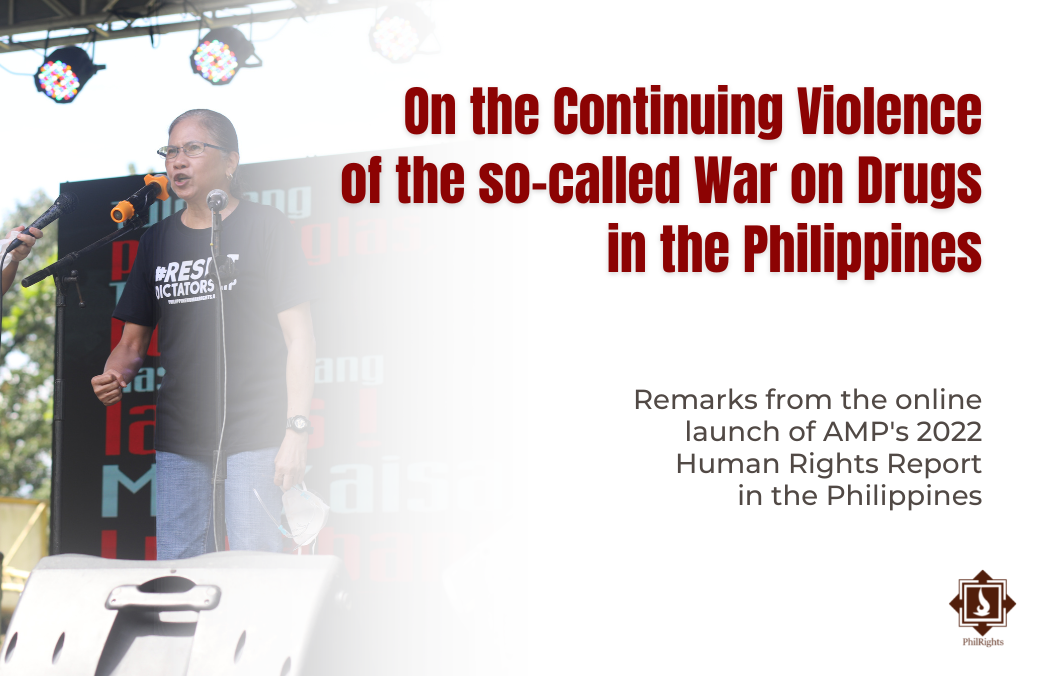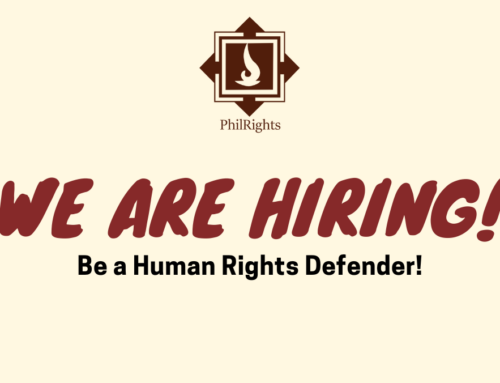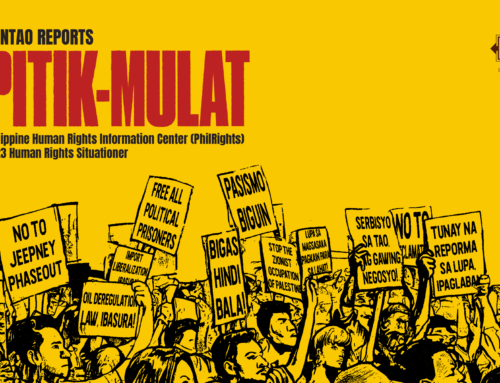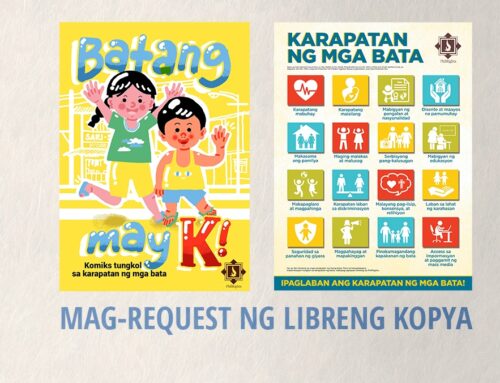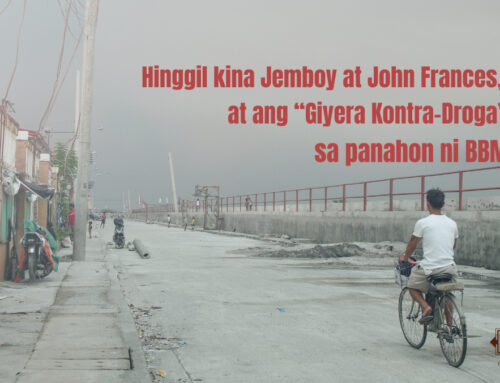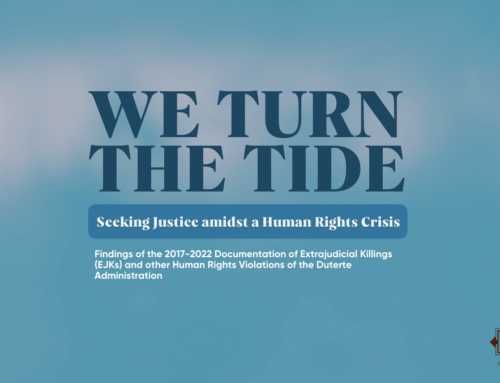Remarks of Prof. Nymia Pimentel Simbulan, Executive Director of the Philippine Human Rights Information Center (PhilRights) and Chairperson of the Philippine Alliance of Human Rights Advocates (PAHRA) during the online launch of the 2022 Report on the Human Rights in the Philippines by Aktionsbündnis Menschenrechte-Philippinen / Action Network Human Rights – Philippines (AMP), held December 7, 2022.
Greetings from the Philippines and a pleasant day to all.
I would like to thank the Aktionsbündnis Menschenrechte-Philippinen / Action Network Human Rights – Philippines (AMP) for this opportunity to share updates on the monitoring and documentation work of the Philippine Human Rights Information Center (PhilRights) of human rights violations in the context of the so-called war on drugs.
For the past five years, our work in this area has allowed us to gather in-depth information on the demographics of victims and their families, the modalities and patterns that have emerged over time, and the multidimensional impacts of State violence on urban poor families and communities.
Our findings are clear: the so-called drug war has precipitated a full-blown human rights crisis that furthered a climate of impunity, injustice, and fear.
Following this year’s national election, the new government had every opportunity to end the human rights crisis, acknowledge the systemic nature of the violations, and hold perpetrators accountable. Yet, the call for justice and accountability from the victims and their families remain unheard.
Indeed, the violence has continued.
Our initial findings between July and November 2022, subject to final validation, have revealed at least 28 extrajudicial killings in three cities alone, 45 unlawful arrests and detention cases, and one enforced disappearance.
Interviews with our community partners suggest that many traditional hotspots—mainly urban poor communities—remain subject to heightened surveillance and that drug watchlists, a mainstay of the Duterte-era’s bloody campaign, continue to exist as an information source for potential targets.
With the International Criminal Court’s investigation gaining momentum, our partner families have reported harassment from the authorities as early as 2021. In one area, some families were asked, under duress, to sign waivers stating they no longer wish to file cases. There were also reports of suspicious calls from unidentified persons claiming to be representatives and lawyers from the ICC urging for a meeting.
The continued existence of quotas for drug-related arrests can explain the uptick in unlawful arrests and detention. These cases often involve planting drugs and paraphernalia to justify detention and filing charges.
Our community partners also reported that there are intensified police activities relating to the implementation of the Anti-Terror Law. In one city in the National Capital Region, cops heavily monitor community leaders and their actions and flag activities related to discussions on human rights and Martial Law. In reported conversations between community leaders and the police, the latter are quick to allege collusion of human rights organizations with red-tagged groups.
Even with these difficult circumstances, our conversations with families left behind suggest that they are as determined as ever to demand justice for their loved ones. The intervention of the ICC is, for them, a significant step forward because the Philippine government has not exerted any genuine effort to investigate what happened.
Their commitment to fight for justice through the ICC process—or other mechanisms for justice—must therefore be supported meaningfully by partners in the Philippines and abroad.
Over a week ago, the Marcos administration launched its new anti-illegal drug campaign, promising everyone involved would work within the bounds of law and respect human rights.
This all sounds promising on paper, especially as it pledges to leave behind the brazen “kill policies” of the Duterte administration. Yet, we cannot help but be wary of how this new campaign might only apply a cosmetic gloss over an ingrained culture of violence and impunity in the streets.
We remain hopeful that there will be an end to the violence—the killings, torture, unlawful arrests, and enforced disappearances that have marred the daily lives of many in urban poor communities. But this is only possible through a systemic overhaul of policing culture, especially through the reintegration of the respect for human rights and the rule of law across all levels of law enforcement.
We also emphasize that veering away from Duterte’s violent ‘drug war’ does not absolve the current administration from its obligation to investigate, prosecute, and deliver justice to all victims and their families.
Let me end this by sharing a video we produced with a few of our partner families from the City of Manila. We acknowledge that these engagements must always include their voices and their aspirations. Here are some of them.



